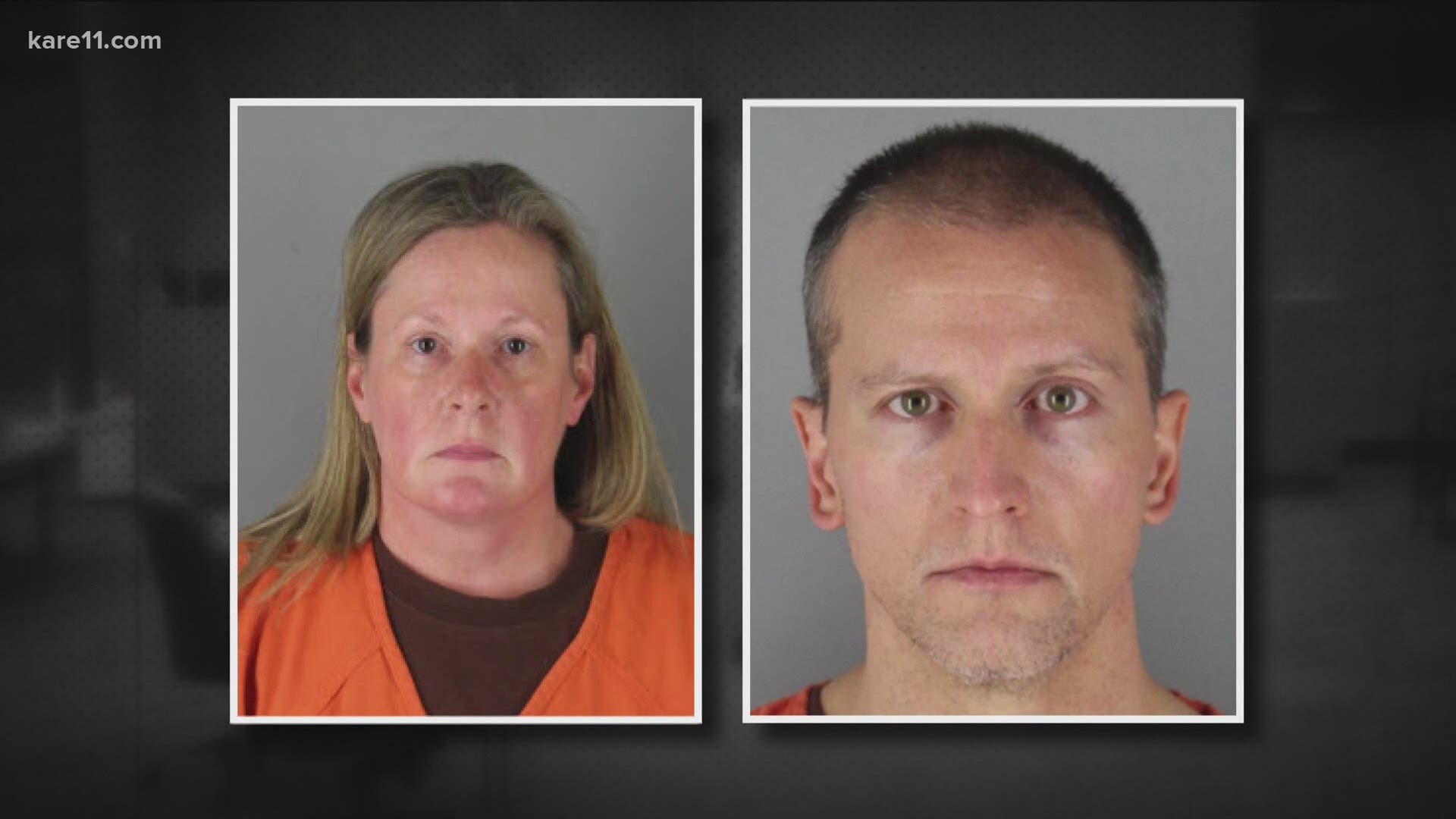MINNEAPOLIS — It's a familiar refrain during protests against police violence: "No Justice, No Peace, Prosecute the Police."
But even on a day in which two former Minnesota police officers – former Minneapolis officer Derek Chauvin and former Brooklyn Center officer Kim Potter – both appeared before a judge on criminal charges, the gap between prosecution and conviction remains wide.
"The charges really aren't made for police officers," said attorney Michael Bryant, managing partner of Bradshaw & Bryant. "There's a different standard involving police officers. You have to show that they acted outside of what a reasonable police officer would do. We, as a society, allow police officers to shoot people, so you have to show that they acted outside of what the reasonable officer would do. There isn't really a charge that's made like that."
Bryant says those challenges help explain why Potter faces a single charge of second-degree manslaughter for fatally shooting Daunte Wright.
Though video and body camera evidence, police reform efforts and public pressure have made it more likely that officers face charges, Bryant says significant obstacles remain in the courtroom, especially when a jury has to consider murder charges.
Bryant: "It wasn't until (former MPD officer) Mohammed Noor that we actually got a conviction. I mean, there were all these cases where either police officers weren't charged, or they weren't convicted. Juries would come to the conclusion that they acted as a reasonable police officer did."
Erdahl: "You mention Noor and that was a case that, at the time, there was a lot of speculation about whether third degree murder did fit."
Bryant: "Yeah, I mean, third degree was primarily made for drive by shootings and things like that."
Kent: "There's now some controversy about that and if we see a third degree murder conviction in the Chauvin trial, it's still up in the air a little bit right?"
Bryant: "Third degree murder is way up in the air right now because, right now, the Noor case was decided by the court of appeals. They made a change to the way you look at third degree, and it's been taken up by the Supreme Court. The Minnesota Supreme Court does not have to take cases, so when they vote to take a case, you think something is going to happen with it. They're not just going to do it to affirm.
"What I expect that may happen with the Minnesota Supreme Court is they are going to say the court of appeals was wrong, by taking out the requirement that somebody else has to be in danger. In Noor's case it was his partner and it was a bicyclist that was in the background, and the court of appeals said, you don't need someone else in danger."
If the Supreme Court reverses that decision, and the Chauvin jury votes to convict him on the revised third-degree murder charge, Bryant says it could force a new trial.
Erdahl: "Does that just underscore the trouble here with charges?
Bryant: "Oh yeah. It underscores that there really isn't a good one to look at and say this is how you charge a police officer. I don't know, does that mean we've got to get to the point where we actually create a murder charge for police officers? I hope not, but that's the problem that comes up in these cases. We want this to stop. You know, we don't want to have these cases, but that being said, yeah, that's a different way that people are looking at it."

